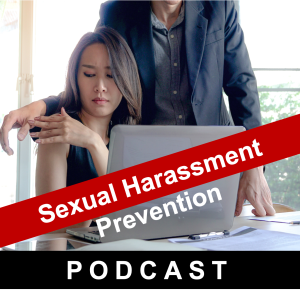Responding to unemployment claims is important. You must respond to challenge the claim. Decisions can be made in your favor without your response, but if you don’t respond, the adjudicator (person who decides) is relying only on the word of the person who filed the claim. Sometimes the adjudicator isn’t given the full story, or even anything that resembles the truth.
I once terminated someone for sexual harassment after he had been previously warned. He filed an unemployment claim stating, “Lack of work.” If we weren’t paying attention and had not responded to the claim, he would have received unemployment and we would have paid a hefty price for it.
Many small business owners do not understand unemployment, how it works, who pays for it, and how it impacts your bottom line. Unlike Social Security, Medicare, or State Disability Insurance (if a state has it), all of which are paid by the employee; unemployment is almost always paid by the employer. Currently, only Alaska, New Jersey and Pennsylvania have unemployment paid by the employee.
Because unemployment is a bit mysterious, these owners don’t pay attention when they receive a claim. They simply think of it as a cost of doing business. Although the amount taken out for unemployment is called a tax, it is really an insurance. That means, like any other insurance, when it is paid out, your rates are likely to go up.
Your unemployment insurance (UI) tax is based on three things:
- Your taxable payroll,
- The amount you have paid into the UI system,
- The claims against your account (called “benefit charges”).
This is called an experience rating, and it can go up or down depending on your payroll and your history with unemployment claims. States generally use a three-year moving period to assign your tax rate. Each awarded unemployment claim can affect your UI tax rates for three years. The cost of an individual UI claim depends on how much the employee made, how long they remain unemployed, the state’s maximum benefit amount, and your payroll.

Here are a few tips to help you respond to an unemployment claim:
- When an employee informs you that they are resigning, require a resignation letter. It can be as simple as the fact that they are resigning and their last day of work. If they will add the reason for the resignation, that is also helpful.
- When terminating an employee, provide them with a letter stating the reason for the termination.
- If it is a layoff, state that in the letter. With that, you are acknowledging that you will not contest unemployment.
- If it is misconduct, make it clear that it is for misconduct. Have the employee sign one copy, stating they received the letter.
- Before terminating an employee for misconduct, make certain that you have all paperwork in order. That you have conducted the appropriate investigations, and that you are prepared to challenge a claim should it be filed.
Although each state is slightly different, simply because an employee is terminated does not mean they will receive unemployment. However, in most cases if they are terminated for incompetence, they will be entitled to unemployment benefits.
Some reasons a former employee’s unemployment claim might be denied are:
- Voluntarily quitting without good cause.
- Violating company rules.
- Unexcused absences.
- Criminal conduct.
- Refusing to work.
- Temporary internship with predefined end date.
- Employee working another job.
Once a decision is made, both you and the claimant will receive a “Notice of Determination.” If the claim for UI benefits is approved, you still have an opportunity to appeal the decision.
At this point, you should feel ready to deal with any unemployment claim that comes your way.
If you have questions or if you are not sure how to complete an unemployment claim, Attaché for Business by Prof360 can help.


